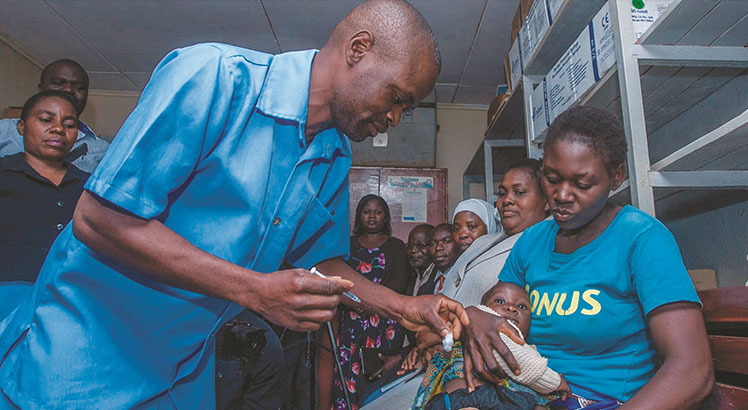US plans K39bn for Malawi malaria fight
The United States President’s Malaria Initiative (PMI) has proposed a $23 million (about K39 billion) funding to support Malawi Malaria Operational Plan for the 2024 fiscal year.
The US global malaria coordinator has since approved the 2024 Malawi Malaria Operational Plan which that country said reflects collaborative discussions with National Malaria Control Programme and other partners.
According to the project document The Nation has seen, the programme will be championed by the United States Agency for International Development (USAid) to support prevention, diagnosis, and treatment of malaria.
“Funding available to support outlined plans relies on the final FY 2024 appropriation from the U S Congress. Any updates will be reflected in revised posting,” it reads in part.
The initiative will also support several interventions including distribution of treated mosquito nets targeting pregnant mothers and children, support case management activities and help in the national immunisation campaign.

The document indicates that apart from being a poor country, flooding, storms and droughts due to climate change as well as the growing population increasingly exacerbate pressure on the health sector.
It adds that the country has a “fragile health system” which is “already stretched beyond capacity” and dependent on foreign help characterised by a 45 percent health worker vacancy rate, persistent stock outs of essential medicines and supplies.
There was no immediate response from the Ministry of Health and the US Embassy in Malawi by the time we went to press.
But health rights activists George Jobe and Maziko Matemba have commended the proposal indicating that, if the US Congress approves the funding, it would bring a positive contribution as the country struggles to end the mosquito-borne disease.
“We cannot end malaria by 2030 without adequate resources. If the Congress approves the suggested resources, it would help a lot,” said Jobe who is Malawi Health Equity Network executive director.
On his part, Matemba said the proposal is important for Malawi “because most initiatives in the health sector are underfunded”.
PMI was launched in 2005 to support the implementation of malaria prevention and treatment measures and other cross-cutting interventions.
It is currently working in 27 countries in sub-Saharan Africa and Malawi began implementation as a PMI partner country in 2006.
According to the World Health Disease Outlook for Malawi released in August 2023, the country registered close to 4.4 million malaria cases in 2021 leading to over 7 390 deaths. M
inistry of Trade and Industry has backed a proposal by multilateral institutions to extend a moratorium on imposing customs duties on electronic transmissions.
The ministry’s principal trade officer Ezron Chirambo was reacting on Monday to a recommendation in the Digital Trade for Development Report to extend the moratorium, which applies to technical equipment required to facilitate digitalisation of trade services set to expire on March 13 this year.
The report, jointly published by the World Trade Organisation, World Bank, International Monetary Fund and United Nations, said the moratorium delivers benefits by reducing trade costs for digitalised products subject to duties if traded offline.
Reads the report in part: “The moratorium increases consumer welfare and extends access to foreign digital inputs that are key for export competitiveness.”
The multilateral institutions further recommend that member countries should impose value added tax (VAT) on other electronic transmissions such as streaming services and purchasing books online.
But in an interview, Chirambo said the moratorium helps developing countries such as Malawi to access the materials required to create a conducive environment to support the development of digital trade.
He said the proposal to introduce VAT on electronic transmissions could help the government to offset the losses in revenue that may be induced by the transition to digital trade.
Said Chirambo: “Most people are going digital and are buying books or accessing other digital services online.
“Most of these transactions or businesses would be taxed if they were done offline.”
In an interview, Economics Association of Malawi vice-president Bertha Bangara-Chikadza urged local authorities not to “fully commit” to the moratorium until they understand its implications on revenue collection and to broader impact on trade and industrialisation.
On the other hand, tax consultant Emmanuel Kaluluma said it may be too late to implement the changes, but acknowledged that introducing VAT on electronic transmissions would be a “game-changer and the best antidote against the revenue gap”.





